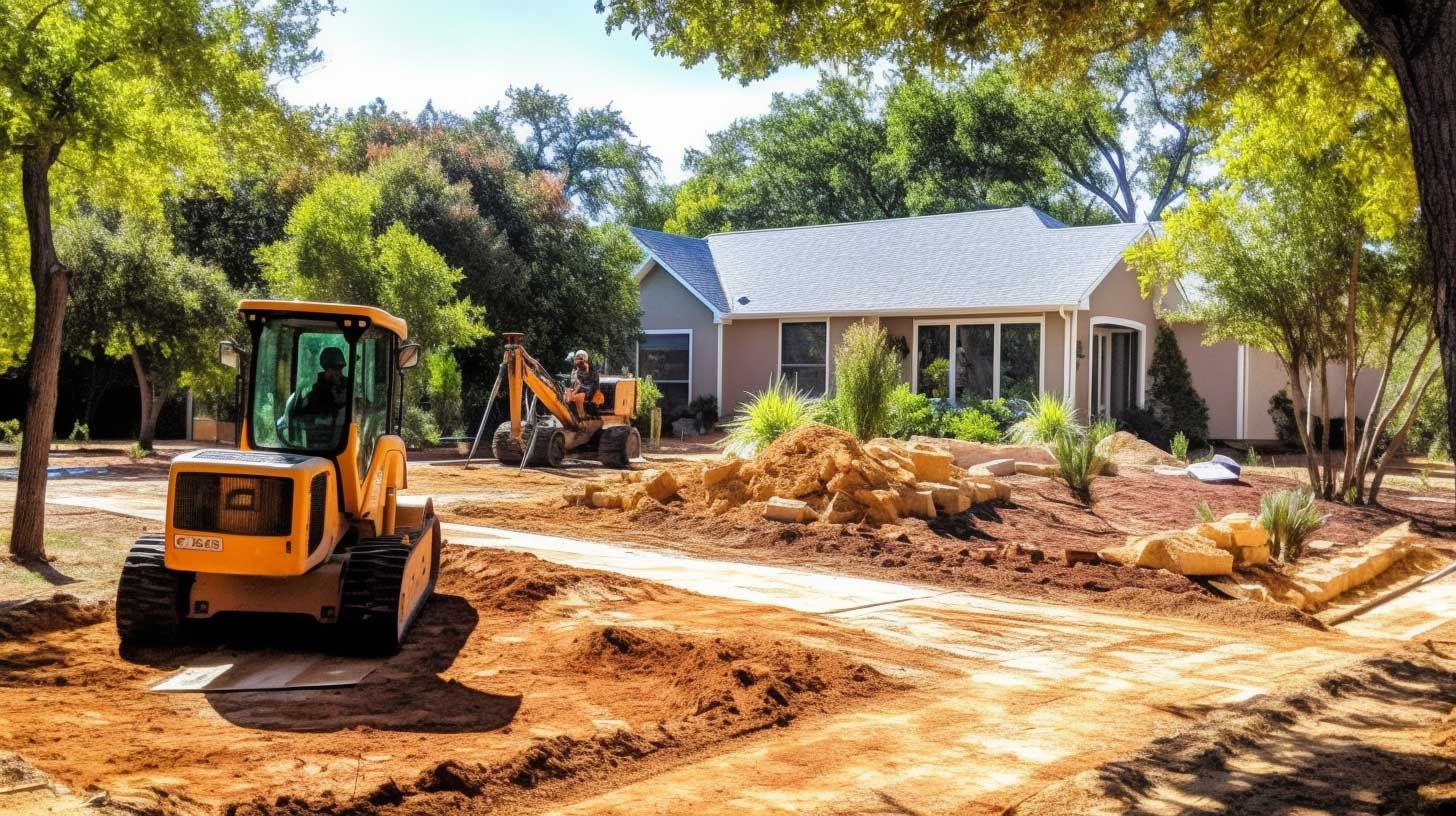Roads/Driveway Installation Wendell, NC
Looking for Top Roads/Driveway Installation Contractor?
Road and driveway installation in Wendell, NC, by
A1 Grading, follows a process that begins with thorough site preparation, followed by leveling and compacting the ground to form a stable base. Depending on client requirements, materials such as gravel, asphalt, or concrete are selected and laid down, with edges secured and necessary drainage systems installed. After the installation, the surface undergoes a curing period to gain strength, and any necessary sealants or coatings are applied for added protection.

Importance of
Road Excavation
Foundation Stability:
Road excavation ensures a stable and level foundation, which is crucial for the longevity and durability of the road.
Drainage Control:
Proper excavation allows for the implementation of effective drainage systems, preventing water accumulation and protecting the road from erosion and damage.
Safety:
By removing obstacles and uneven terrain, road excavation contributes to safer and smoother driving conditions for vehicles and pedestrians.
Cost-Efficiency:
Properly executed road excavation can reduce the need for frequent repairs and maintenance, resulting in long-term cost savings.
Project Success:
Road excavation is a fundamental step in road construction, and its quality directly impacts the success and reliability of the entire project.
Our Driveway
Installation Process
Step 1: Site Preparation
Clear and grade the land to create a stable base for the driveway.
Step 2: Material Selection
Choose the appropriate driveway material based on client preferences and site conditions.
Step 3: Installation
Lay and compact the selected material to form a smooth, durable surface.
Step 4: Edge Finishing and Drainage
Secure the driveway edges and install effective drainage systems.
Step 5: Final Inspection and Handover
Ensure the driveway meets quality standards and provide maintenance guidelines to the client.
Frequently Asked Questions
-
What materials are used for gravel road?
Gravel roads are primarily constructed using crushed stone, typically limestone or granite, mixed with sand and clay. This combination creates a durable and permeable surface, allowing for effective water drainage and reduced erosion.
-
What are the layers of a gravel road?
A gravel road typically consists of three layers:
- Subgrade: The natural soil or fill material compacted to support the layers above.
- Base Course: Composed of larger crushed stone, this layer provides structural strength and stability.
- Surface Course: The top layer, consisting of smaller gravel or crushed stone, ensures a smooth driving surface and aids in water drainage.
-
What are the benefits of gravel roads?
Gravel roads offer several benefits, including:
- Cost-Effectiveness: They are less expensive to construct and maintain compared to asphalt or concrete roads.
- Permeability: The porous nature of gravel allows for effective water drainage, reducing surface runoff and erosion.
- Traction: Gravel roads provide good traction, reducing the risk of skidding.
- Rural Suitability: They are well-suited for rural areas with lower traffic volumes.
-
How thick are gravel roads?
The thickness of gravel roads can vary depending on the intended use and local regulations, but generally, the combined thickness of the base and surface courses ranges from 8 to 12 inches. The subgrade layer's thickness depends on the soil type and load-bearing requirements.
-
What is the best base layer for gravel road?
The best base layer for a gravel road is typically composed of larger, crushed angular stones, such as limestone or granite. This material provides the necessary structural strength and stability, while also allowing for adequate water drainage. The choice of base layer material may also depend on local availability and site-specific conditions.
Contact Us
Contact Us
We will get back to you as soon as possible
Please try again later
Contact Information
Phone:
(919) 422-0223
Email:
Address:
1201 Martin Pond Rd, Wendell, NC 27591, United States of America


